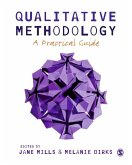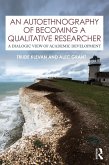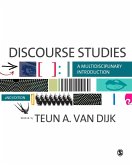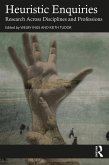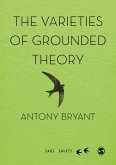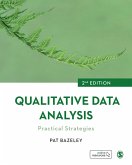Is qualitative research in crisis?
In Questioning Qualitative Inquiry Martyn Hammersley raises fundamental questions about the current state of qualitative social research. He examines some of the changes that have taken place within it over the past fifty years, suggesting that the move away from natural science as a model, and towards an appeal to literature and art, involves rejection of key principles that are essential to research of any kind.
Hammersley argues that, in important respects, qualitative inquiry has not lived up to the claims originally made on its behalf, and that more recent developments have worsened the situation. Insufficient attention has been given to the problems surrounding leading ideas like thick description, analytic induction, and constructionism. The argument is pursued through discussion of the work of influential writers - such as Clifford, Geertz, Denzin and Lincoln - and by detailed examination of concrete issues, like the value of interview data, the rationales for discourse and conversation analysis, the role of rhetoric in research reports, and the nature of assessment criteria.
At a time when qualitative inquiry is coming under renewed challenge in some quarters, the task of addressing the methodological problems it faces has become urgent. These essays on current developments and debates are essential reading for anyone interested in the future of qualitative research.
In Questioning Qualitative Inquiry Martyn Hammersley raises fundamental questions about the current state of qualitative social research. He examines some of the changes that have taken place within it over the past fifty years, suggesting that the move away from natural science as a model, and towards an appeal to literature and art, involves rejection of key principles that are essential to research of any kind.
Hammersley argues that, in important respects, qualitative inquiry has not lived up to the claims originally made on its behalf, and that more recent developments have worsened the situation. Insufficient attention has been given to the problems surrounding leading ideas like thick description, analytic induction, and constructionism. The argument is pursued through discussion of the work of influential writers - such as Clifford, Geertz, Denzin and Lincoln - and by detailed examination of concrete issues, like the value of interview data, the rationales for discourse and conversation analysis, the role of rhetoric in research reports, and the nature of assessment criteria.
At a time when qualitative inquiry is coming under renewed challenge in some quarters, the task of addressing the methodological problems it faces has become urgent. These essays on current developments and debates are essential reading for anyone interested in the future of qualitative research.
Dieser Download kann aus rechtlichen Gründen nur mit Rechnungsadresse in A, D ausgeliefert werden.
'Written in Hammersley's usual considered style and is pitched perfectly for post-graduate students, and teachers of advanced methods courses but alos for early career researchers still unclear of which direction they face within the contemporary landscape and proliferarting 'schools' of qualitative research' -
Rob Smith,
Cardiff University, for Qualitative Research
'Questioning Qualitative Inquiry is essential reading for both post-graduate student confronted by overwhelming methodological pluralism and the established scholar sitting comfortably in their ontological comfort-zone'
L. da Costa & Sam Hillyard, ,
Durham University, for Qualitative Research
'The critiques in Hammersley's collection of essays have an even-handed rigour. Analyses of different approaches to developing knowledge about the social move between the nitty-gritty of method and exegetical discussion of philosophies behind different approaches'
Anita Naoko Pilgrim
University of Glamorgan for Qualitative Research
Rob Smith,
Cardiff University, for Qualitative Research
'Questioning Qualitative Inquiry is essential reading for both post-graduate student confronted by overwhelming methodological pluralism and the established scholar sitting comfortably in their ontological comfort-zone'
L. da Costa & Sam Hillyard, ,
Durham University, for Qualitative Research
'The critiques in Hammersley's collection of essays have an even-handed rigour. Analyses of different approaches to developing knowledge about the social move between the nitty-gritty of method and exegetical discussion of philosophies behind different approaches'
Anita Naoko Pilgrim
University of Glamorgan for Qualitative Research




